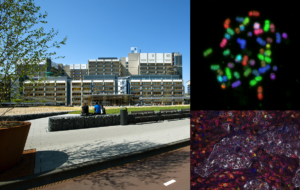Eurolife encourages the participation of its students in summer schools of Eurolife University Members. Take a Summer School course to expand, deepen and share your knowledge. Do you wish to learn what is new in Clinical & Translational Neuroscience, Vaccinology, Clinical Education, Neuromuscular Diseases, Transplantation and (Clinical) Research or Trauma Surgery (Pre-hospital Care, Visceral Trauma and Orthopedic Trauma)– take part in the Eurolife University Members Summer School.
News
RESULTS – 3rd Call for Short-term Eurolife Research Exchanges
Short-term Eurolife Research Exchanges is a Eurolife grant programme addressed at junior scientists, who hold a PhD degree. The Network offers 9 grants of 1500 EUR to support the travel and living expenses of scientists of Eurolife Institutions, who wish to undertake research at another Eurolife institution. The expenses need to be directly related to […]
Dr Kurakula’s experience – Short-term Eurolife Research Exchanges – 2nd round
Konda Babu Kurakula, PhD – junior scientist at LUMC- shares his experience of visiting a research laboratory at University of Barcelona. Project title: Isolation and culturing endothelial cells from pulmonary arterial hypertension patients Home institution: Leiden University Medical Center (LUMC). Department of Molecular Cell Biology Hosting institution: University of Barcelona. Department of Medicine – Hospital […]
Eurolife Summer School 2018
The “Molecular Mechanisms in Cancer – Translating Discoveries into Personalised Therapies” Eurolife Summer School lasts one week and will be held in Leiden (The Netherlands) from 9th to 13th July 2018. Cancer is one of the most common causes of death around the world; one out of every eight of all deaths is due to cancer. Cancer arises when cells acquire gene mutations that induce uncontrolled cell growth often resulting in invasion into other tissues. Standard chemo- and radio therapy are aimed at killing the rapidly proliferating cancer cells. However, these therapies can be ineffective and have effects on normal cells that cause serious side effects […]



